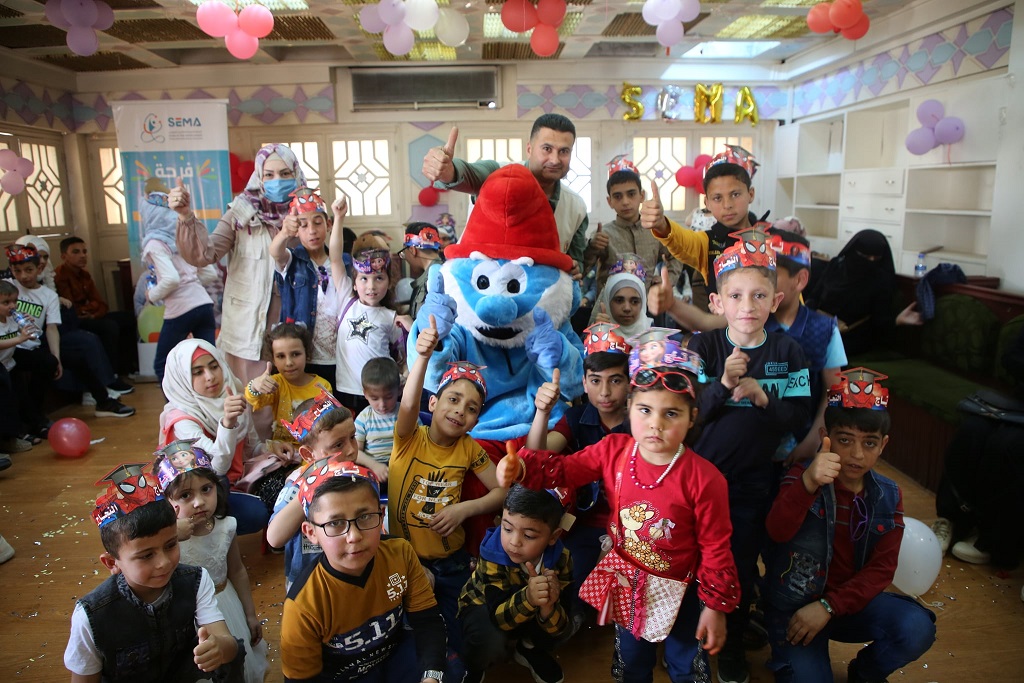Addressing the emotional needs of children is certainly pivotal for their physical and mental development and well-being.
As such, children require a set of emotional needs to be addressed by caregivers, such as parents, teachers, and social workers, for them to develop into physically and mentally healthy adults.
This article will explore children’s emotional needs and the role of caregivers in addressing them effectively.

Explanation of the significance of emotional needs in children
Children worldwide have universal emotional needs that should be addressed by parents and caregivers in order for them to grow into psychologically sound adults.
Such common emotional requirements include
- Acceptance and unconditional love.
- Security and safety.
- Paying attention and recognizing their needs.
- Sincere and open communication.
- Empathy and compassion.
- Sense of belonging.
- Freedom of expression.
Overview of the role of parents, teachers, and professionals in meeting these needs
In that sense, caregivers, such as parents, teachers, and professionals, play a substantial role in the lives of children.
Parents are considered the early educators of their children. Therefore, they should be offering a safe and nurturing environment for the development of their children.
Additionally, parents should be good listeners to their children by understanding their feelings and perspectives and helping them to build positive and healthy relationships with their peers.
Teachers have a huge responsibility to meet children’s needs. This is because they play a critical role in creating a learning environment that fosters children’s inclination for learning.
Teachers should also make sure that children have the needed resources and support they need to realize their full potential.
Likewise, professionals such as pediatricians, social workers, and psychologists play a substantial role in children’s lives.
Such professionals diagnose the physical and mental issues that impede the development of children and address them effectively.
Definition and explanation of emotional needs in children
Meeting the emotional needs of children is very pivotal to nurturing mentally and physically healthy adults.
That is, those emotional needs comprise a set of physical and psychological requirements that should be fulfilled in children for them to experience positive relationships with the adults and peers around them.
For example, children should have meaningful conversations with others and be exposed to positive role models to feel a sense of security and acceptance from those around them.
The impact of unmet emotional needs on children’s development
Meeting the emotional needs of children can help their well-being and development.
On the contrary, unmet emotional needs for children can have a devastating effect on them.
For example, some problems that children might face as a result of failing to meet their emotional needs include anxiety, depression, and stress.
In addition, children might develop difficulty regulating their emotions, which leads to other psychological and behavioral issues, like aggression, withdrawal, and loneliness.
Other overwhelming effects on children resulting from unmet needs include a lack of secure attachments that lead to low self-esteem and a lack of trust.
The role of parents in meeting children’s emotional needs
Parents provide a safe environment for their children to express themselves. This paves the way for children to learn and manage their emotions, as well as form healthy relationships.
Parents should also be supportive of their children by showing them their unconditional love and providing guidance and structure.
Additionally, parents should be good listeners by understanding their feelings and perspectives, helping them to build positive and healthy relationships with their peers.
The role of teachers in meeting children’s emotional needs
Like parents, teachers should develop a safe and caring atmosphere in which they can express their feelings in a healthy way.
In other words, teachers should equip children with support and guidance mechanisms, enabling them to deal with their emotions and regulate them in a positive way.
Moreover, teachers should be able to recognize the signs of emotional distress in children and refer them to appropriate professionals and psychologists to offer them the help they need.
Teachers should also be offering children the praise and encouragement they need to feel secure in expressing their emotions.
Strategies for teachers to create a nurturing and inclusive classroom environment
Teachers can adopt a set of strategies to help foster the physical and emotional development of children.
Some of the strategies that can help teachers build an inclusive environment for children include:
- Memorizing children’s names and knowing their interests and learning styles.
- Allowing students to express themselves freely and openly, as well as creating a safe space for dialogue for them.
- Encouraging students to work together and help each other.
- Respecting children’s diversity and making sure they feel welcome and valued.
- Recognizing children’s achievements and rewarding their positive behavior.
- Modeling positive behavior for children to follow and encouraging the development of healthy relationships.
The importance of building positive teacher-student relationships to address emotional needs
Undoubtedly, building a positive teacher-student relationship is essential for addressing children’s emotional needs.
This relationship helps establish trust and mutual respect between children and their teachers.
Indeed, a positive relationship between teachers and students paves the way for open communication, enabling children to share their feelings and concerns.
Moreover, teachers can provide children with guidance and the needed skills to help them feel involved in the learning process.
Such guidance and encouragement can also help children develop coping mechanisms to process their emotions.

The different professionals who may be involved, such as counselors, psychologists, and social workers
Besides parents and teachers, many professionals can assist in the development of children by meeting their emotional needs. Those professionals include:
- Counselors: They provide counseling sessions for families to help them develop the needed skills to deal with their children. They can also work with children to help them manage their emotions and develop the skills necessary to identify their weaknesses and strengths.
- Psychologists: They can provide children with the assessment, diagnosis, and treatment needed to address their emotional issues and mental disorders.
- Social workers: They are specialized in helping families, individuals, and communities by offering them counseling sessions. They can also provide support for children and their families and empower them with the resources and services they need.
SEMA’s efforts to meet children’s mental health needs
At the Syrian Medical Association for Syrian Expatriates (SEMA), we make sure to address the mental and psychological issues of refugee children because we recognize the significance of their early years for their overall development and well-being.
SEMA’s prioritization of refugee children’s mental health lies in recognizing the significance of mental health for children’s overall well-being and development.
Therefore, we make sure to partner with local and global health providers to ensure the provision of state-of-the-art health facilities and experienced staff to efficiently address the physical and mental health needs of the refugees.
Help us in our mission to improve the physical and mental health of refugees now by donating today to our programs and initiatives.
Remember that today, we can make a positive difference in the lives of refugees!
FAQ
Why is it important for educators to collaborate with parents?
It is important for educators to collaborate with parents because, together, they can develop a better understanding of the children’s emotional needs and the strategies needed to support them.
Why is it important to respond to children’s emotional needs?
It is important to respond to children’s emotional needs because it helps hone their personality traits and develop self-confidence, self-esteem, and resilience.
How can educators collaborate with colleagues and families to support children’s learning?
Educators can collaborate with colleagues and families to support children’s learning processes by holding meetings with them to discuss the child’s progress, strengths, and areas of development.
Why is it important to support children’s emotional development?
The development of personal, social, and emotional skills (PSED) helps children cultivate a positive self-image, appreciate and value others, acquire social skills, promote emotional well-being, and foster a positive attitude towards learning.
Reference
Read More:
Meeting Refugee Women’s Health and Hygiene Needs | SEMA
Strategies for Supporting Children Who Experienced Trauma or Loss
Hydration Hacks: Stay Refreshed Throughout Ramadan!
Charitable Giving and Community Impact Explored in Ramadan
How does giving Sadaqah during Ramadan benefit the community?




